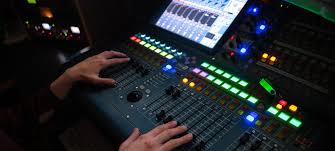Audio engineering and production have evolved significantly over the years, embracing advanced techniques and technologies that have revolutionized the industry. Whether you are a budding sound engineer or an experienced professional, mastering these advanced techniques is crucial for delivering high-quality audio in various contexts, from music production to film soundtracks. In this article, we will explore some of the cutting-edge methods and tools that define modern audio engineering and production, and highlight the opportunities for learning these skills through specialized audio engineering courses in India, particularly in Kerala.
Advanced Techniques in Audio Engineering:
1. Digital Signal Processing (DSP)
Digital Signal Processing (DSP) is at the core of modern audio engineering. DSP involves the manipulation of audio signals to enhance sound quality or to create special effects. Techniques such as equalization (EQ), dynamic range compression, reverb, and delay are fundamental DSP processes used to shape and control sound. Advanced DSP tools allow engineers to correct pitch, eliminate noise, and create intricate soundscapes that were previously impossible.
2. Automation
Automation is another critical technique in audio production. It allows engineers to dynamically control various parameters over time, such as volume levels, panning, and effects settings. Automation is essential for creating smooth transitions and ensuring that the mix remains balanced throughout the track. This technique is particularly useful in complex productions where manual adjustments would be impractical.
3. Surround Sound Mixing
Surround sound mixing provides a more immersive audio experience, making it indispensable in film and gaming industries. This technique involves distributing audio across multiple speakers placed around the listener, creating a three-dimensional sound field. Advanced surround sound formats like Dolby Atmos and DTS
offer unparalleled depth and precision, allowing engineers to place sounds in specific locations in a 360-degree space.
4. Advanced Microphone Techniques
The choice and placement of microphones can significantly impact the quality of a recording. Techniques such as the XY stereo method, Mid-Side (MS) recording, and binaural recording capture sound with spatial accuracy and depth. These methods are essential for recording live performances, orchestras, and environmental sounds, providing a natural and immersive listening experience.
5. Mastering
Mastering is the final step in the audio production process. It involves optimizing the final mix for distribution by enhancing its overall sound, ensuring consistency across all playback systems, and preparing it for various formats. Advanced mastering techniques include multiband compression, stereo widening, and harmonic excitation, which add polish and professional quality to the finished product.
Audio Engineering Education in India:
To master these advanced techniques, aspiring audio engineers can benefit from formal education and training. India offers numerous audio engineering courses, with several prestigious institutions providing comprehensive programs.
Audio Engineering Courses in India:
India is home to many institutions that offer specialized courses in audio engineering and production. These courses cover a wide range of topics, from basic sound principles to advanced production techniques. Students learn about acoustics, recording technology, mixing and mastering, live sound engineering, and more. Some programs also offer hands-on training with state-of-the-art equipment and software, preparing students for real-world challenges in the industry.
Sound Engineering Courses in Kerala:
Kerala, in particular, has emerged as a hub for sound engineering education. Known for its rich cultural heritage and vibrant music scene, Kerala offers unique opportunities for aspiring sound engineers. Several institutions in Kerala provide sound engineering courses that are highly regarded for their comprehensive curriculum and practical approach. These courses often include modules on advanced recording techniques, digital audio workstations (DAWs), live sound production, and sound design for film and media.
Benefits of Specialized Training:
Enrolling in specialized audio engineering and sound engineering courses in Kerala or other parts of India offers several benefits. These programs are designed to provide students with a strong foundation in both theoretical knowledge and practical skills. Experienced faculty members, who are often industry professionals, guide students through the intricacies of audio production, ensuring they are well-prepared for careers in music production, broadcasting, film sound, and live sound engineering.
Moreover, these courses often include internships and industry collaborations, giving students valuable hands-on experience and networking opportunities. Graduates from these programs are equipped to handle the latest technology and techniques in audio engineering, making them highly sought after in the competitive job market.
Conclusion:














